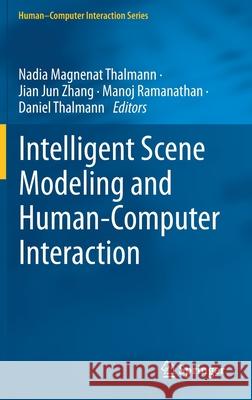Intelligent Scene Modeling and Human-Computer Interaction » książka
topmenu
Intelligent Scene Modeling and Human-Computer Interaction
ISBN-13: 9783030710019 / Angielski / Twarda / 2021 / 282 str.
Kategorie:
Kategorie BISAC:
Wydawca:
Springer
Seria wydawnicza:
Język:
Angielski
ISBN-13:
9783030710019
Rok wydania:
2021
Wydanie:
2021
Numer serii:
000303886
Ilość stron:
282
Waga:
0.59 kg
Wymiary:
23.39 x 15.6 x 1.75
Oprawa:
Twarda
Wolumenów:
01
Dodatkowe informacje:
Wydanie ilustrowane











